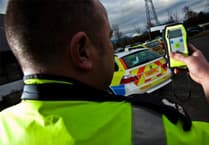THERE are few families in this region that have been untouched by the tragedy of suicide. And sadly, there are very often too few warning signs that our family members or close friends are at the point where ending it all seems like the only option left.
According to data compiled by the Office of National Statistics going back 40 years, males in Wales under the age of 50 have a suicide rate of 28 per 100,000. On average, men who fall into the age bracket of between 22 and 44 are four times more likely to end their own life that women in the same demographic category.
And behind these statistics are families forever changed by the loss of a brother, son, father — or indeed a mother, sister or daughter.
A coroner’s inquest last week heard, for example, that one 58-year-old man who took his own life by hanging had been offered “little or no help” from support services despite struggling with mental health issues and depression for more than a decade.
And like too many others, the victim’s mental health woes were exacerbated by the restrictions cause by the coronavirus pandemic.
Now, a new national monitoring system is being set up to collect information on suspected suicides as part of a wider approach to prevent future tragedies, the Deputy Minister for Mental Health and Wellbeing Lynne Neagle has announced. The Real Time Suicide Surveillance is being launched in partnership with Public Health Wales, all Welsh police forces and the NHS Wales Health Collaborative and will collect information relating to sudden or unexplained deaths that are suspected to have been by suicide.
This system has been developed due to the delay between an unexpected death, and the death being recorded as a suicide following a coroner’s inquest. This makes it difficult to implement an immediate response and support. The service will provide information without this delay, enabling services to respond much sooner.
While this is by no means a solution, it is at least another important step to try and identify where services can focus help.
The onus for now remains on us all — as always — to be more vigilant, wide-eyed, and attuned to changes that are a plea for help. We all need to continue to work together to do more.





Comments
This article has no comments yet. Be the first to leave a comment.